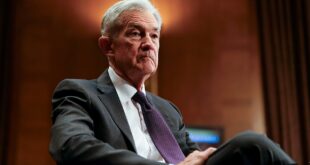
Rachel Reeves is under pressure to hammer Britain’s biggest banks with a windfall tax after they posted profits of more than £23 billion in just six months – despite a deepening cost-of-living squeeze for customers.
Campaigners say the bumper earnings of Barclays, HSBC, Lloyds, and NatWest must be taxed to fund public services and ease pressure on struggling households. The call, from the monetary reform group Positive Money, echoes the move taken by Sir Tony Blair’s Labour government in 1997, when a one-off windfall levy on privatised utilities – including banks – raised £5.2 billion for employment and welfare reforms.
Now, with banks’ profits surging on the back of higher interest rates, the think tank says Reeves should take a leaf out of Blair’s playbook. Simon Youel, head of policy at Positive Money, said: “Just as energy companies shouldn’t be able to profiteer, neither should banks – taxing windfalls makes sense for both.”
Based on recently published half-year results:
- Barclays reported a £5.2 billion pre-tax profit, up 23 per cent
- HSBC posted a £11.9 billion pre-tax profit, though this marked a 26 per cent fall
- NatWest saw a £3.3 billion pre-tax profit
- Lloyds recorded £3.1 billion pre-tax profit
That brings their combined profits for the first six months of 2025 to £23.5 billion, according to official data – a massive increase from 2020 levels, before interest rate hikes began feeding bank margins. Positive Money proposes a windfall tax of 38 per cent on UK retail banking net income above £800 million – mirroring the energy profits levy applied to oil and gas giants. It claims this would raise £11.3 billion, enough to scrap the two-child benefit cap and cover recent welfare U-turns.
The Treasury has not ruled out the idea, and insiders suggest a bank levy is being actively modelled ahead of Reeves’ first Budget this autumn. But the City is already mounting a fierce fightback.
NatWest chief executive Paul Thwaite said: “Strong economies need strong banks. What I want to do is use the bank’s capital to invest in the business but also to support customers. If we do that, that supports the wider UK growth agenda.”
Lloyds boss Charlie Nunn added: “Increasing taxes on banks wouldn’t be consistent with helping us support the economy.” And Barclays chief C.S. Venkatakrishnan warned: “Growth is the primary objective for the UK and a higher taxation of businesses is not a path towards that growth.”
Positive Money points out that while households are squeezed by high borrowing costs, banks are benefiting from taxpayer-funded interest payments via the Bank of England – much of which flows to shareholders. Mr Youel said: “The government is quietly handing over tens of billions of pounds a year to the Bank of England to cover the costs of higher interest rates, much of which is ending up in the pockets of banks’ shareholders.”
International comparisons also offer mixed lessons. Spain has imposed a similar tax on domestic banking revenue, while the IMF warned in 2024 that “windfall levies do not constitute a growth-friendly consolidation strategy.” Nevertheless, public anger over banking profits during a time of economic hardship may make a windfall tax politically difficult to resist – particularly as ministers search for ways to fund Labour’s pledges without raising income tax or VAT.
 Latest World Breaking News Online News Portal
Latest World Breaking News Online News Portal






